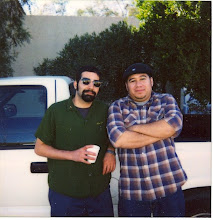ever since i was diagnosed with cancer, I've had the incredible luck of meeting cancer survivors in all walks of my life. from old friendships to sources within the beat I cover for the Star to friends of friends. and of course everyone has a story to share -- of their tio, tata, grandpa, friend or just something they gleaned from an article about Lance Armstrong. people don't have to search far to find some personal connection to this disease.
so I've been reading this book "Cancer: the evolutionary legacy" by Mel Greaves to understand what is happening to me and millions of others.
I guess one of the most interesting things I've since discovered in my reading is summed up in this quote: "the issue isn't just why do we get cancer but why not."
It's Greaves's opinion that cancer is best understood and explained within a Darwinian, or evolutionary, framework.
To put it simply, the mechanics within our body that have prompted changes from our primate origins is a double edged sword. on the one hand, our body, in a sense, mutates in response to our environment and needs, like recovering from illness. but that which allows our body to mutate, or adapt, to our environment can also go unchecked, prompting cancerous cells to grow and multiply.
"mutations happen all the time and are blind to consequences," Greaves writes. "This is the base upon which natural selection and evolution operates in nature. The second advantageous but inherent dangerous legacy is a physiological requirement,especially in more complex multi cellular creatures including ourselves, for cellular functions that endow resilience but are pregnant with malignant potential..."
the ability of our cells to change and adapt, to move quickly where they are needed (like healing, or a scab forming...)can also go awry.
crazy.
Sunday, August 5, 2007
Subscribe to:
Post Comments (Atom)

1 comment:
Good knowledge. Not comforting knowledge but good knowledge. Makes me realize I've got to stop putting off my date with the sigmoidoscope.
Post a Comment